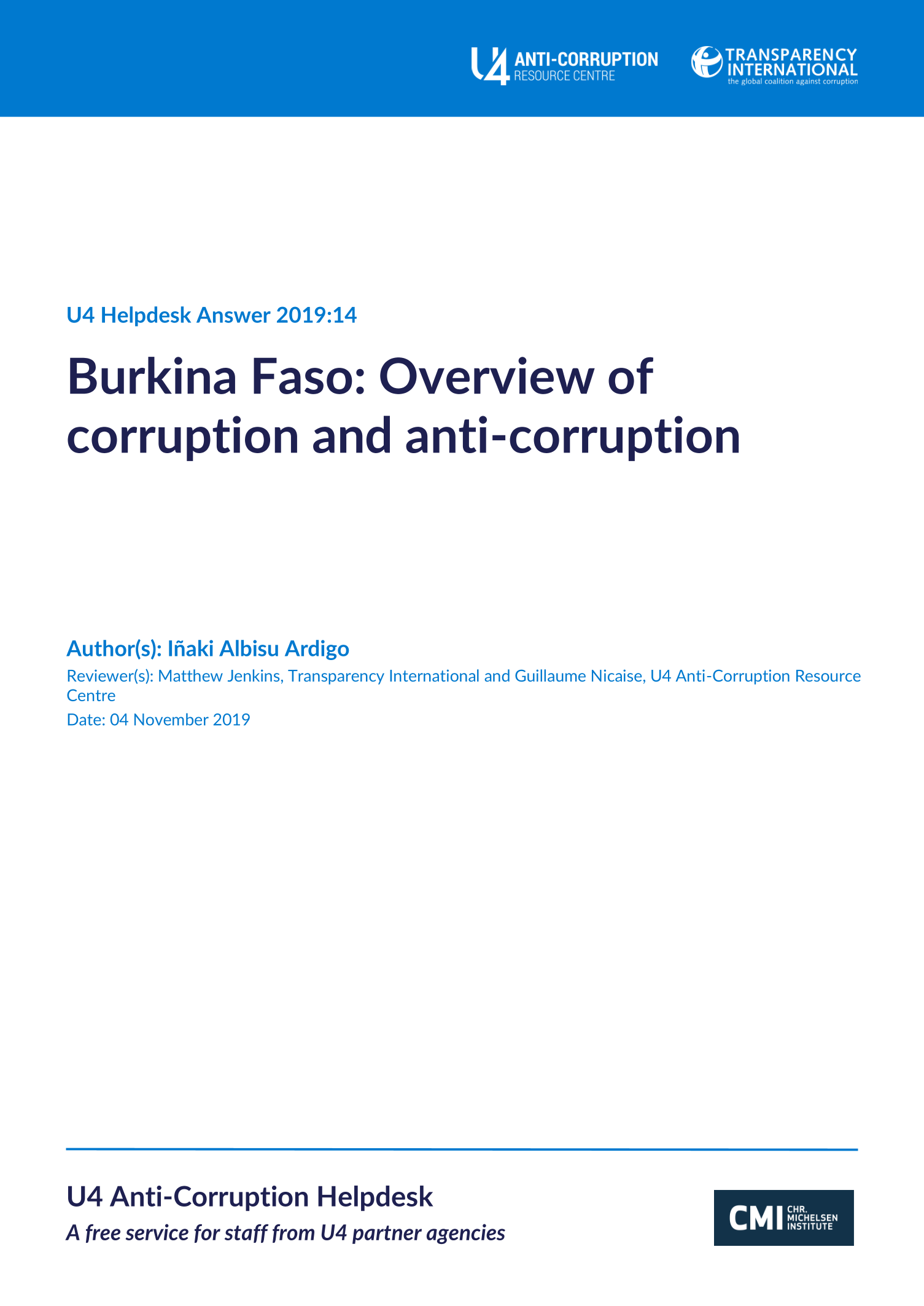Main points
- Bribery is present at all levels of the Burkinabé state and business sector, but perceptions of corruption are below the average in Africa.
- Various sectors suffer from corruption in Burkina Faso, but the available literature focuses on corruption in the extractive industries, public service provision in health and education, and the judiciary.
- Popular protests in 2014 led to the resignation of the president and subsequent anti-corruption reforms.
- More than half of Burkinabé respondents to the 2019 GCB believe that corruption has decreased in the past year and that the current government is doing a good job countering corruption.


